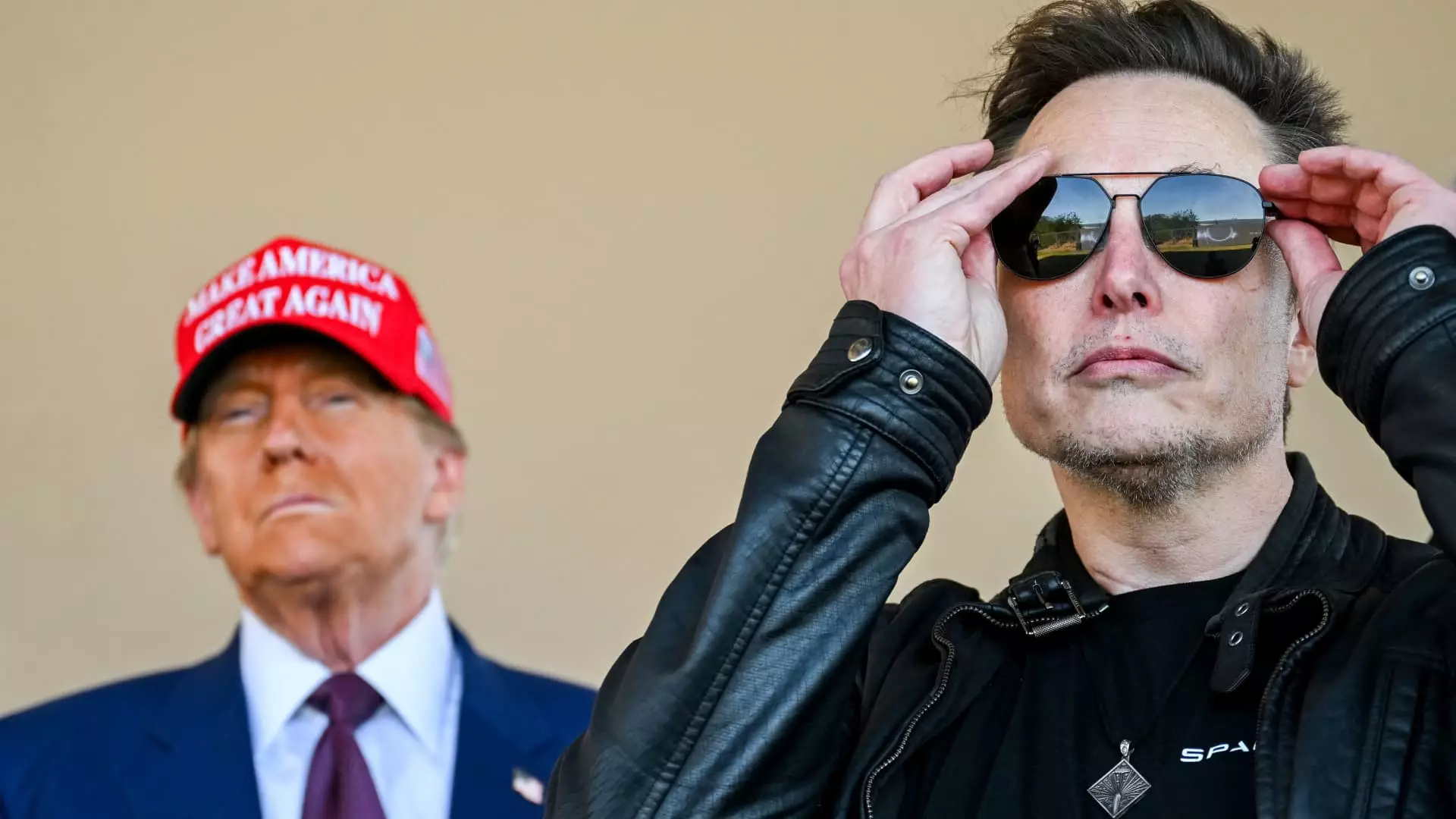The intersection of wealth and politics has always been contentious, with billionaires exerting influence over public policy and political figures. Recently, this narrative has been brought to the forefront of American politics as Congress confronts the repercussions of an impending government shutdown. The target of scrutiny is none other than Elon Musk, the world’s richest man and the enigmatic figure at the helm of multiple influential companies. Following a significant funding dispute, questions have emerged regarding Musk’s sway over lawmakers, especially in the context of President Trump’s forthcoming administration.
Elon Musk has not shied away from voicing his opinions on political affairs, particularly through social media. His vocal opposition to a bipartisan funding proposal crafted by House Republicans became a flashpoint for debate, leading to what some critics termed an unprecedented intermingling of business interests and legislative decisions. Musk, whose platform holds sway over millions, posted vehement critiques of the bill on X, which was formerly known as Twitter. His significant online following undoubtedly amplifies his statements, raising alarms among Democrats who claim that such influence undermines the democratic process. With posts like “Any member of the House or Senate who votes for this outrageous spending bill deserves to be voted out in 2 years!” Musk has effectively positioned himself as a puppet master in the eyes of some lawmakers.
Critics have not held back in their assertions. A notable reaction came from Democratic lawmakers, such as Jim McGovern and Rosa DeLauro, who suggested that their Republican counterparts capitulated to Musk’s preferences. This notion of a private citizen directing political outcomes necessitates a discussion about the implications of individual wealth in shaping public policy. Furthermore, the friction between Musk’s interests and legislative outcomes raises pertinent questions about the motivations driving such public opposition. Are these actions pure expressions of personal belief, or do they reflect broader business ambitions, potentially favoring favorable relations with countries like China?
The atmosphere of division within Congress has been palpable, as evidenced by the reaction from various political figures regarding Musk’s involvement. Concerns voiced by Democrats about Musk’s influence have been met with rebuttals from Republicans touting the advantages of his transparency in highlighting legislative details. Senator Bill Hagerty of Tennessee praised Musk for shedding light on the contents of the bill that might otherwise have gone unnoticed, arguing that his engagement with voters enhances governmental accountability. This dichotomy underscores the fractured nature of political alliances. While some Republicans align with Musk’s perspective of fostering transparency, Democrats warn of the existential threat posed by the concentration of power in the hands of a single wealthy individual.
Adding to the complexity, Republicans like Congressman Tony Gonzales have drawn parallels between Musk’s influence and more traditional political roles. Gonzales stated that while there exists a duly elected president and various congressional leaders, Musk’s impact feels so pronounced that it positions him as a quasi-leader—an illustration of how wealth can permeate political boundaries.
The Road Ahead: Implications for Future Governance
As lawmakers prepare for future negotiations, particularly with upcoming deadlines, the interplay between Musk’s input and legislative actions could serve as a precursor for impending chaos. The behavior exhibited by Congress in the face of Musk’s tweets points to a precarious balance of power. With the potential for Musk’s influence to shape significant legislative decisions under a Trump-led agenda, many lawmakers are bracing for instability in the political landscape.
Democratic Senator Chris Coons further encapsulated the concern shared by many regarding Musk’s capacity to intertwine his business objectives with national governance. As congressional negotiations loom on the horizon, the vital role of wealth in politics cannot be overstated; it offers a reflection of broader societal anxieties. With an imminent administration change and the prospect of legislative impasses, the enduring question remains: How far will the influence of wealth shape the direction of American governance?
Elon Musk’s recent foray into political commentary has raised serious questions about the role of wealth in American democracy. As Congress grapples with the implications of Musk’s influence, it reveals the intricate ways in which billionaires like Musk can disrupt traditional political processes. This evolving dynamic will undoubtedly pose significant challenges as the nation heads into a new era of governance marked by the complex interplay of wealth, power, and politics.

Leave a Reply